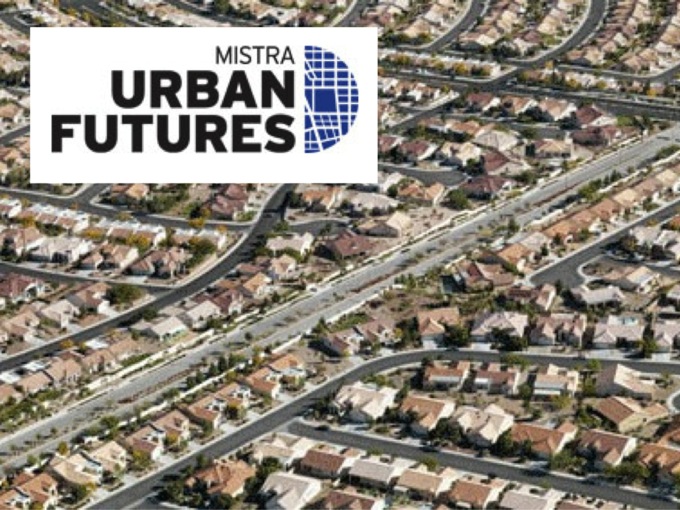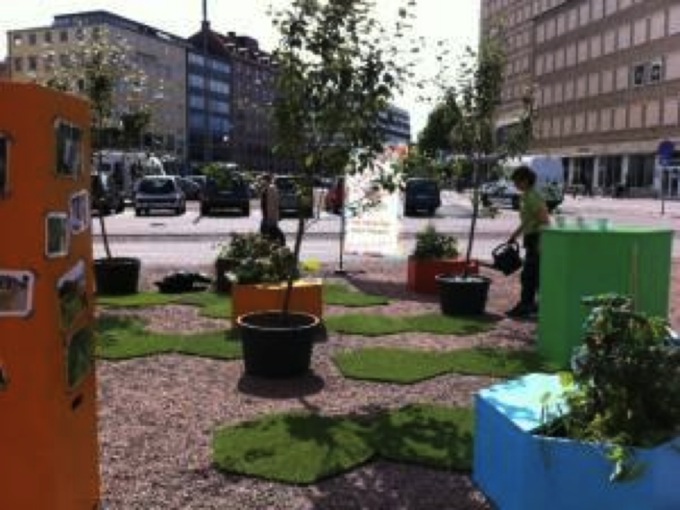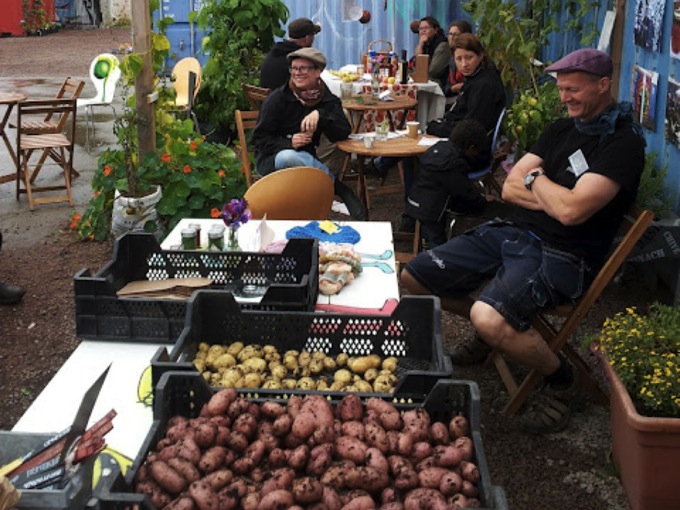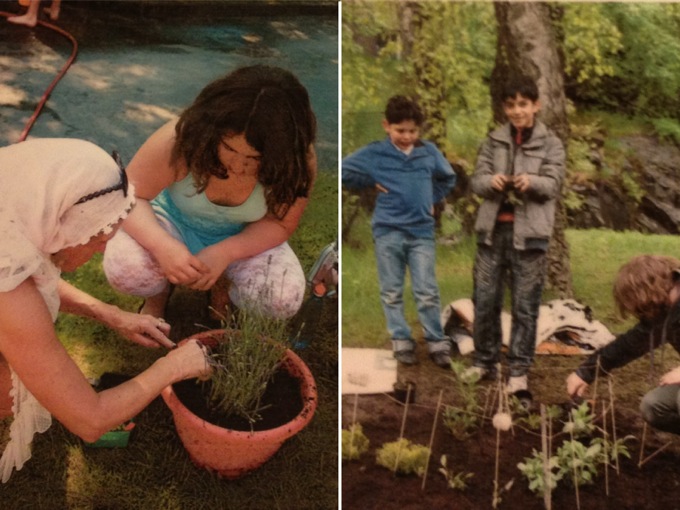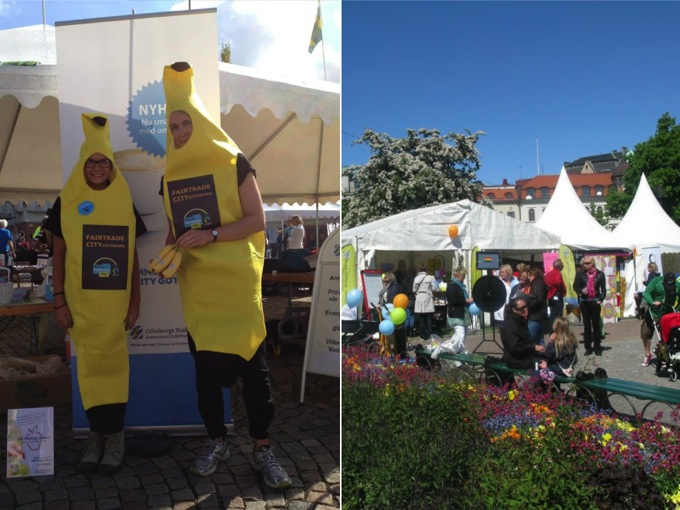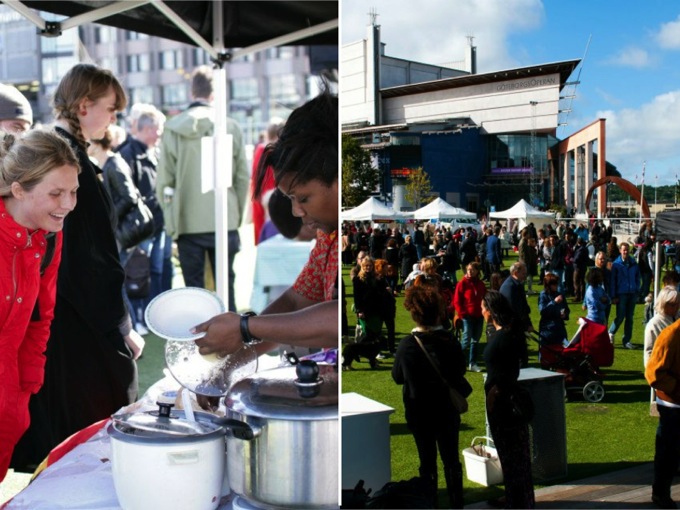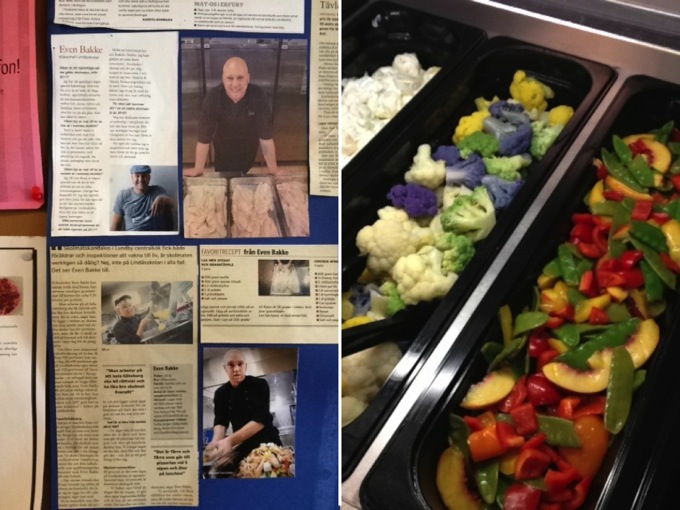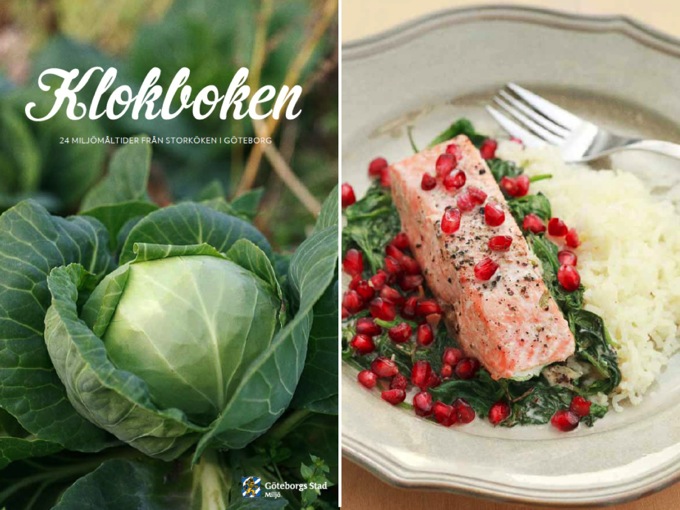Gothenburg / food and sustainability
Sweden has a growing food industry that is of major importance to rural as well as urban areas. Attention is always paid to animal health and welfare. Many Swedish farmers are proficient in organic cultivation, and environmental thinking is far-reaching with regard to sustainable food production in cultivated and wild areas and in the sea.
In 2012, Gothenburg is “the Food Capital of Sweden”. In fact, this appellation is not only a title. Major efforts are spread to raise the level of knowledge, efficiency business and skills in food. The country’s vision is to become the new culinary nation in Europe by 2020. The vision extends all the way from field to fork, from institutional catering to luxury restaurant. The City of Gothenburg includes this thinking in a larger focus on future sustainability solutions.
| Mistra Urban Future | Mistra Urban Futures is an international center for sustainable urban futures founded by seven organisations from the Gothenburg region. The vision of Mistra Urban Futures is to increase capacities to transform current, unsustainable urban development pathways to more sustainable urban futures in the global South and North. Mistra Urban Futures focus areas are Fair, Green and Dense cities. Separately and even more when they are combined, these focus areas make a powerful contribution to sustainable urban development, both in practice and research. Food is one the issues of the research network.Growing
Urban farming and peri-urban farming have increasingly become concepts included in urban planning and the discussion of Gothenburg as a sustainable city. The latest leisure swan survey made indicated that 20% of the inhabitants wanted to grow. There is thus a need for an organized response to the questions from the public and officials that pops up more often. In order to treat these issues from an intelligent and common approach the Parks and Landscape Committee has given its administrative department the task of writing a guideline for the cultivation of the land on which the committee is responsible for and trustee – that is public land and natural areas for recreation and nature conservation.
| Community gardens | The community garden “Stadsnära odling” is an innovative public platform where citizens can log and describe their growing project and the place they intend to set the community garden. The platform allows checking the land availability, who own it and start administrative practices to implement the project. Stadsnära odling is run by the City of Gothenburg’s Property Office with the aim to encourage small-scale cultivation close to peoples’ homes. The goal is to start new plantations, farming in unconventional places, cultivations that bring joy and help to spread knowledge and create contact between generations and people from different parts of the city and the world. But also to develop the cultivation and allotments that already exist in Gothenburg.Collective private initiatives are also germinated toward the development of an urban farming activity enable to deliver fresh local food to people and restaurants. Even if those activities are still in margin, they foster a real interest among inhabitants in certain areas.
| Gothenburg falafel | Stadsjord (“urban agriculture”) is a three years projects built on multi-stakeholder engagement in sustainable small scale food production. The aim is to reach the development of socially, ecologically and economically resilient and create more fun in urban life. Indeed thanks to this local production the so-called “Gothenburg falafel” is made with urban local produced beans, instead of chick peas that are not growing in Sweden. It is a good example of sustainable food fusion to match an ethnic popular food with ingredients available locally.Pedagogical gardens at schools are currently developed as pilot project in Gothenburg. The first aim is to give children opportunity to reconnect with nature. Those gardening activities are seen as a proactive education technics to empower youth with different capabilities: collective work, environmental knowledge, food consciousness etc.
| Guldhedsskolan’s pedagogical school garden | This two years project is one of two pilots for pedagogical gardens and will be followed by four new schools in 2013. This project aims to collect lessons and generate a pedagogical package to mainstream the pedagogical garden practice to all schools of the Municipality.Delivering
Population food procurement is quite classical in Gothenburg with people buying to large stores and supermarkets.
The innovation comes from the Traffic Office and the Procurement Company that are setting requirements for transportation in the public procurement. They intend to include specific clauses in order to decrease the environmental impact of products. Public procurement is turning to be a strong level to change major supplier of food in public services’ habits.
Fair trade aspects are as well becoming increasingly important in the public procurement. This improves sustainability with a global local policy aiming to buy fair and organic, but also to carry retailers towards new choices of products to sale.
| Fairtrade City | In Spring 2011 Gothenburg was certified Fairtrade City. This means that the Municipality must live up to criteria for fair trade procurement, conduct active information work on the subject and have a certain amount of Fairtrade products on supply in shops, cafés and workplaces.Enjoying
There is a varied food culture in Gothenburg. In areas with a high proportion of people with foreign origin, local festivals such as Hammarkullen festival in Angered, has become a yearly event where food inspired from different countries are an important part.
| Global Picnic | This young and fresh initiative aims to organise convivial food events to bring different ethnical backgrounds together and reciprocally stimulate exchanges on food and sustainability from different ethnical points of view. Exchanges are source of mutual tolerance. Other projects under development are an inter faith bus tour, tasting nights and cooking classes with different themes around the city. http://globalpicnic.seFor several years there has been a big trend with television food programs, cooking books and people renovating their kitchens to top standard. Major national television food programs and food magazines have emerged. Food topic is part of the Swedish peoples’ discussions and could create new job activities for dynamic and original persons.
| Lindåsskolan school Chef | Even Bakke is a young and motivated Chef who innovates towards sustainable practices and challenge canteens rules. He takes part in international canteen Chef competitions, involves pupils to help in the kitchen for a couple of hours a day and proposes to the pupils to taste the food in a self-service way, instead of wasting food they don’t like after having taken too much on the plate. This open minded chef intends to raise interest and respect to food and creates dialogue with canteen employees and as well as with the pupils.A recent national survey among adults in Sweden shows that Swedes eat too much sugar and too much of the wrong kind of fat, but too little fruit and vegetables. Worst eating habits have young adults. A reduction of greenhouse gases (GHG) is necessary as the food sector is a great major contributor to GHG emissions. In the EU, food consumption is estimated to contribute to around 30% of the total GHG emissions, more than the total emissions from the transport sector. The highest range of emission associated with production is from animals especially ruminants like cattle and sheep. Food ingredients like fresh vegetables, cereals and pulses are in an opposite level associated with a low amount of GHG emissions. This environmental consciousness have led politicians to act on public food meals.
The Swedish model of free school dinners for all children in compulsory school is unique in the world. It is in school that we learn to eat healthily. The municipality of Gothenburg tries to influence the food culture in families towards more organic food, ethical labelled food, less meat and more healthy food. In the public sector, nutrition and organic food are in focus. When asked in surveys, people are in general positive to start eating less meat, but their aim is not always shown as a real act.
| The ‘Klokboken’ of the tastiest sustainable meals | The City of Gothenburg’s environmental committee invited chefs from the city’s kitchens to share their tastiest sustainable recipes. This cooperation resulted in a sustainable cookery book named ‘Klokboken’. The name plays on words in Swedish: ‘kok’ means cookery and klok means wise. This cookery book contains, in addition to recipes for sustainable meals, practical tips on what every individuals can do to increase the percentage of sustainable meals.